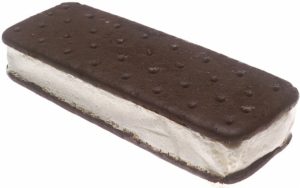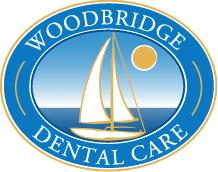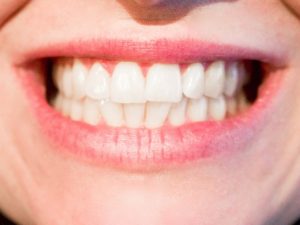Dentist Near Me
 What makes teeth sensitive?
What makes teeth sensitive?
If the idea of biting into an ice cream sandwich makes you cringe, you may be one of the millions of people who suffer from sensitive teeth. This is often caused by movement of fluid in the dentin – the soft inner tissue beneath the enamel of your tooth. This motion irritates the tooth nerve, creating a tingling sensation and sometimes pain.
Another common cause of tooth sensitivity occurs when the tiny tubes of fluid in the dentin become exposed. This can happen due to tooth wear, receding gums, or damage to the tooth. When this occurs, pain is triggered by eating or drinking foods that are hot or cold, sweet or acidic, and even through contact or exposure to air.
Whitening and orthodontic treatment may cause temporary teeth sensitivity. In most cases, this type will disappear within a week or two. In severe cases of sensitivity, the tooth nerve itself may be exposed, causing severe pain and irritation and requiring immediate treatment.
What can you do about sensitivity?
If you are suffering from sensitivity in your teeth, tell your hygienist or dentist at your next dental visit. They may need to screen for more serious underlying causes that could need treatment. They will also be able to recommend your best method of managing your discomfort.
Is sensitivity preventable?
Some forms of sensitivity are preventable. Avoid using hard-bristled toothbrushes and do not brush aggressively. This can cause higher levels of wear that lead to sensitivity. If you participate in sports, wear a mouthguard to protect your teeth from trauma. Chipped and cracked teeth often become sensitive.
Once serious underlying issues have been ruled out, you can help to manage mildly sensitive teeth with special toothpastes that are designed to decrease your sensitivity. If these do not provide sufficient relief, ask whether a prescription product may be needed.
If you experience tooth sensitivity, contact our office to schedule an appointment. We can help.






 When you travel by plane, your flight attendant will advise that in the rare case of an emergency, you must first put on your air mask before attempting to help those around you. When this is not followed, the results can be catastrophic, both for you and for those you might otherwise have been in a position to assist. While this is crucial information for all, many women particularly require this gentle reminder to prioritize their own needs above those of others.
When you travel by plane, your flight attendant will advise that in the rare case of an emergency, you must first put on your air mask before attempting to help those around you. When this is not followed, the results can be catastrophic, both for you and for those you might otherwise have been in a position to assist. While this is crucial information for all, many women particularly require this gentle reminder to prioritize their own needs above those of others. Teeth grinding, known as bruxism, is a habit many get into without even realizing it. Grinding your teeth can be damaging for several reasons. If you or your child have been struggling with teeth grinding, make an appointment to see us. We will assess the damage to the teeth, as well as assist you in addressing solutions. Here’s what you need to know about teeth grinding.
Teeth grinding, known as bruxism, is a habit many get into without even realizing it. Grinding your teeth can be damaging for several reasons. If you or your child have been struggling with teeth grinding, make an appointment to see us. We will assess the damage to the teeth, as well as assist you in addressing solutions. Here’s what you need to know about teeth grinding. Your smile is one of the first things a person will notice when you meet. If you would like to improve your smile with a simple procedure, teeth whitening may be a great option for you, especially if you have stained, dull or discolored teeth. Our dental office is providing teeth whitening services to new and existing patients.
Your smile is one of the first things a person will notice when you meet. If you would like to improve your smile with a simple procedure, teeth whitening may be a great option for you, especially if you have stained, dull or discolored teeth. Our dental office is providing teeth whitening services to new and existing patients. Oral cancer does not discriminate. It affects those of all ages, genders and races. Smokers do develop oral cancers at higher rates than non-smokers. However, this does not absolve the rest of the population from being at risk, as well.
Oral cancer does not discriminate. It affects those of all ages, genders and races. Smokers do develop oral cancers at higher rates than non-smokers. However, this does not absolve the rest of the population from being at risk, as well. Do you brush your teeth after lunch? If you’re one of the millions of people who work outside the home, chances are you don’t have the time or resources to brush during the day. However, not being able to brush doesn’t mean you can’t protect your teeth at work.
Do you brush your teeth after lunch? If you’re one of the millions of people who work outside the home, chances are you don’t have the time or resources to brush during the day. However, not being able to brush doesn’t mean you can’t protect your teeth at work. Tooth sensitivity is a condition that can make everyday activities such as eating, drinking, and even walking outside in colder weather painful and unpleasant. If you frequently experience a sharp burst of pain in your teeth when drinking coffee, eating ice cream or being hit by a gust of cold air, sensitive teeth may be the cause. Sensitive teeth are a common, though frustrating issue. The Academy of General Dentistry (AGD) estimates that up to 40 million adults in the United States suffer from this condition.
Tooth sensitivity is a condition that can make everyday activities such as eating, drinking, and even walking outside in colder weather painful and unpleasant. If you frequently experience a sharp burst of pain in your teeth when drinking coffee, eating ice cream or being hit by a gust of cold air, sensitive teeth may be the cause. Sensitive teeth are a common, though frustrating issue. The Academy of General Dentistry (AGD) estimates that up to 40 million adults in the United States suffer from this condition. These are some of the most common questions we hear from parents, and the answers we provide:
These are some of the most common questions we hear from parents, and the answers we provide: Cosmetic dentistry has been around for ages. We’ve noticed that now, more than ever, people are concerned with overall wellness in addition to a beautiful smile. In past years, we had many patients come to us seeking whitening and seeming unconcerned with ridding their smile of infection and decay.
Cosmetic dentistry has been around for ages. We’ve noticed that now, more than ever, people are concerned with overall wellness in addition to a beautiful smile. In past years, we had many patients come to us seeking whitening and seeming unconcerned with ridding their smile of infection and decay. We often have visitors to our office ask about solutions for fixing stained teeth or filling in gaps between teeth. We sometimes suggest veneers. Veneers are one cosmetic option available for correcting your smile. Here’s what you should know about veneers, and whether they are right for you and your smile.
We often have visitors to our office ask about solutions for fixing stained teeth or filling in gaps between teeth. We sometimes suggest veneers. Veneers are one cosmetic option available for correcting your smile. Here’s what you should know about veneers, and whether they are right for you and your smile.